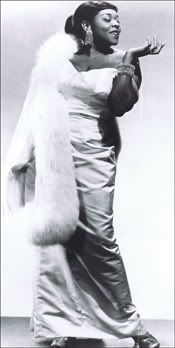
It's hard for me to pin down exactly what it is that attracts me to "old-time" or "roots" music. It's like a multifaceted gem, place it between your fingers and it will sparkle in different areas depending on how you hold it to the light.

Roots music is history: It's American history, the peoples history, our ancestors history...dig back as far as you like.
One of my favorite tunes to play on the banjo is "Road to Boston," a song popular during the revolutionary war. Another favorite is "If You Miss Me at the Back Of the Bus."
"If you miss me at the back of the bus
And you can't find me nowhere
Come on up to the front of the bus
I'll be riding up there"
Old-time songs keep history alive. They inform us and teach us, and we are the better for it.

And the old songs give me a certain, indescribable feeling, like a connection of sorts, a bond. It feels like the earth, the dirt. It's beautiful and dangerous and very, very real. Listen to "Little Bessie" by Roscoe Holcomb. If that doesn't hit you in the breadbasket nothing will.

I can't imagine what my world would be like without the song collectors, folk scholars and historians who collect, preserve and teach the music and stories of the past. People like Mike Seeger, who not only collects and preserves, but teaches as well, assuring that the music of the people will never be far from view for those who are willing to look for it. People like Alan Lomax, Art Rosenbaum, Joyce Cauthen, Cecil Sharp, John Cohen, Joe Bussard Jr., etc. These people handed us a gift. They are the ones who placed the multifaceted gem in our hands to do with as we please.

So, what
do we do with it? Do we coddle it and protect it like a baby?
As Mike Seeger once said,
"I feel like we're picking up this music from where it was left off, and we're going to carry it on. Some of us will warp it around a little and mix different elements together. And then some of us will write new tunes and songs based in tradition. That's the way tradition has always worked," and
"young people all over the U.S. are picking up this kind of music now, and not only playing it well but...they're expanding on it."*.
So, this music, this gift, has been given to us without baggage, to do with as we please. We can keep it to ourselves, preserving the music as one would bones in a museum, or we can let the music live and breath, continuing the tradition of integrating cultures and experiences into the music. We can think of the gem as something to be taken out and played with, not hidden.
That, I believe, is where the jewel will sparkle.
I'll leave with a quote from Alice Gerard:
"It's not just a question of keeping the music alive but integrating it into our own lives, and it's having meaning alongside the way we live now."*This post was inspired by Consumerism and Orthodoxy in old-time written by Cathy Moore on the Banjo Meets World blog.
*from the film Homemade American Music by Yasha Aginsky







